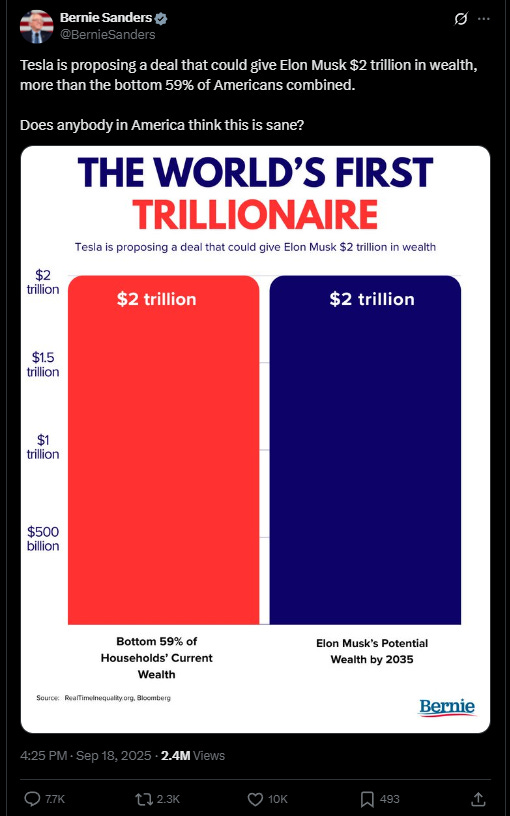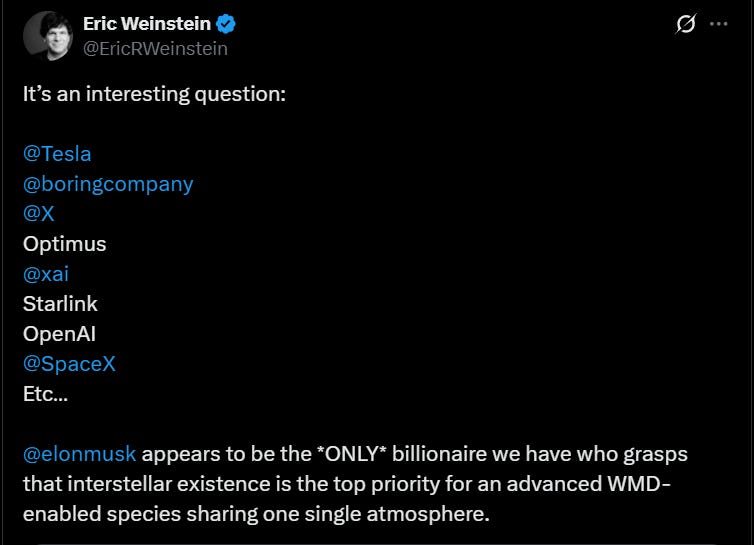Should Trillionaires Exist?
Why Inequality Fuels Civilization
Bernie Sanders recently tweeted:
“Tesla is proposing a deal that could give Elon Musk $2 trillion in wealth, more than the bottom 59% of Americans combined. Does anybody in America think this is sane?”
His objection centered on a Tesla compensation proposal that could push Musk toward trillionaire status, making him wealthier than the bottom half of America combined. Sanders frames this as “insane” because it magnifies inequality. But this is the wrong lens. The right question isn’t how much wealth Musk holds—it’s what that wealth does.
The Network Logic of Agency
Agency in a network does not spread evenly. It clumps, it hubs, it accelerates where vectors align. In biology, this is how neurons form brains. In economics, this is how capital forms titans. To call this “inequality” is to miss the function: concentration is the amplifier that makes civilization more than the sum of its parts.
Musk as a Hub Node
Elon Musk is not a dragon sitting on a pile of gold. He is a hub node converting capital into existential leverage: reusable rockets, planetary internet, scalable electrification, autonomous robotics. The value of his wealth is not that it exists but that it is channeled. Dispersed through welfare or bureaucracy, those same dollars dissolve into consumerist entropy. Concentrated, they fund expansion.
Sanders vs. Weinstein
Sanders sees pathology in inequality; Eric Weinstein sees amplification. Sanders’ worldview is Malthusian: assume the pie is fixed, fight over the slices. Musk’s worldview is expansionist: make more pies, on more worlds. Redistribution is stagnation dressed as morality. Concentration, in the right hands, is not theft but transformation.
The Real Insanity
The real insanity is not Musk’s wealth but the belief that neutering it would leave us better off. A civilization trapped on one planet, armed with WMDs, and paralyzed by envy is one accident away from extinction. A civilization that tolerates concentrated agency, even celebrates it, has at least a shot at the stars.



